There are practically no Indian tribes left living within city lines in Brazil. The only exception is the Guarani Indians, who live in the outskirts of Sao Paolo in a settlement called Village Tekoa of Pyau.
The Guarani are pariahs in Brazil: they don’t enter into negotiations with the authorities; don’t engage in discussions on the prospects of indigenous population survival; and they practically don’t assimilate into Brazilian society. There are several reasons for this.
First of all, guided by centuries-old experience, the Indians are convinced that such negotiations are pointless and only waste the time of the parties involved.
Secondly, they have never received a clearly articulated invitation to a dialogue from Brazilian authorities.
Thirdly, the Indians, by definition, cannot offer the Brazilian leadership what they are interested in – glory or wealth.
Perhaps, this seems like a harsh description of the ruling elites of Brazil, but that is the way it is. The establishment’ relationship with the indigenous population boil down to two models – either silent disregard, or exclusion from their native territories. This happens all across Brazil with rare exceptions, but perhaps the most graphic representation of this in the Guarani reservation in the outskirts of Sao Paolo.
Once, the indigenous people used to occupy quite a vast wooded area here, where they would hunt, farm and forage. As Sao Paolo expanded, the city authorities tried to push the Indians out of their land, which turned out to be an extremely difficult pursuit, considering the fact that Indians react very strongly to affronts to their liberties. For instance, when a threat of their extortion from the land emerged, a tribe, living nearby, presented authorities with an ultimatum: if encroachments on the land continued, the whole tribe would commit a collective ritual suicide. The authorities backed off, realizing that Indians don’t waste their breath.
In the late 20th century it became difficult to directly attack the indigenous people, so the city authorities made a part of the land in the Village Tekoa of Pyau into a National park, cutting them off a big part of the territory. The subsequent attack was carried out several years ago, when the city road department decided to build a highway across the Guarani’s land, effectively cutting their land in half. In the end, only a narrow strip of land, squeezed in between the National park and the highway, was left at the disposal of the Guarani.
On a part of the land they had grabbed the city constructed an elite village, - it became populated by representatives of the upper middle class, who surveys indicate are convinced that the Guarani reservation is a city dump. This is because the authorities have banned the Indians from pouring sewage into the common system. They therefore have to dig reservoirs into their land and pour it there, creating a risky epidemiological situation. At the same time the authorities should pay attention to the acute problem that Sao Paolo faces: the river Tiete, which flows there, is the dirtiest in the world: 38 cities in the region dump their waste in it.
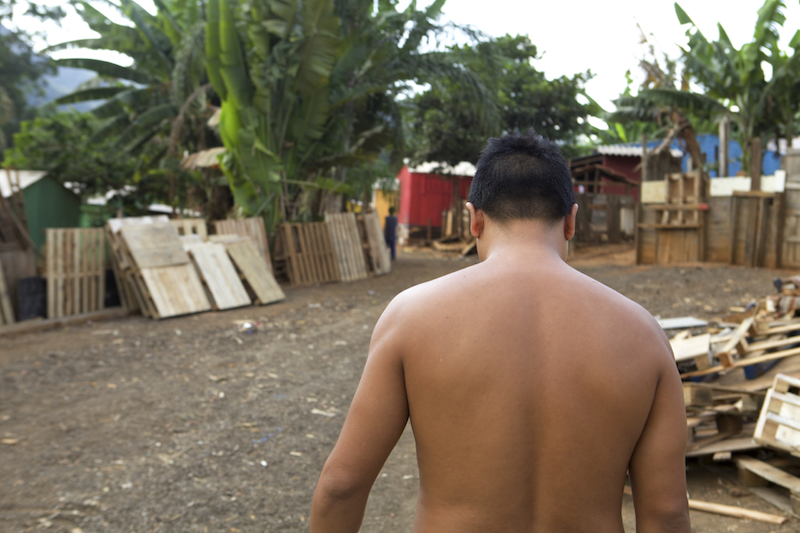

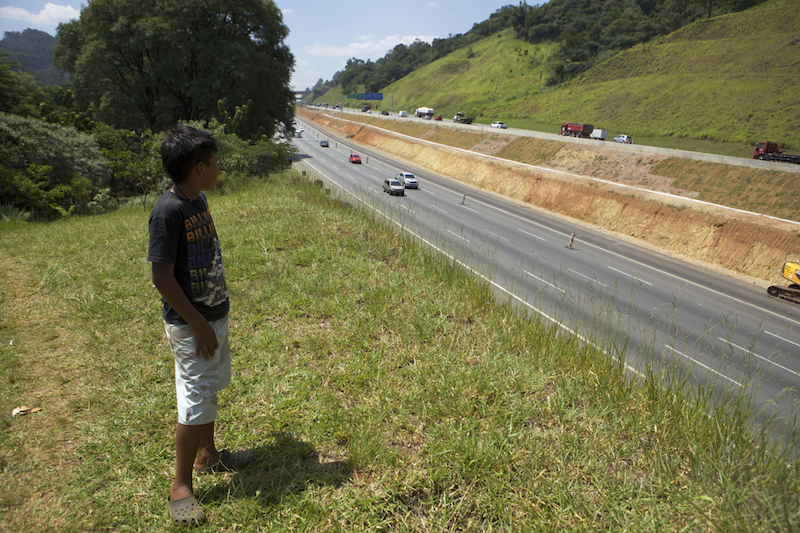
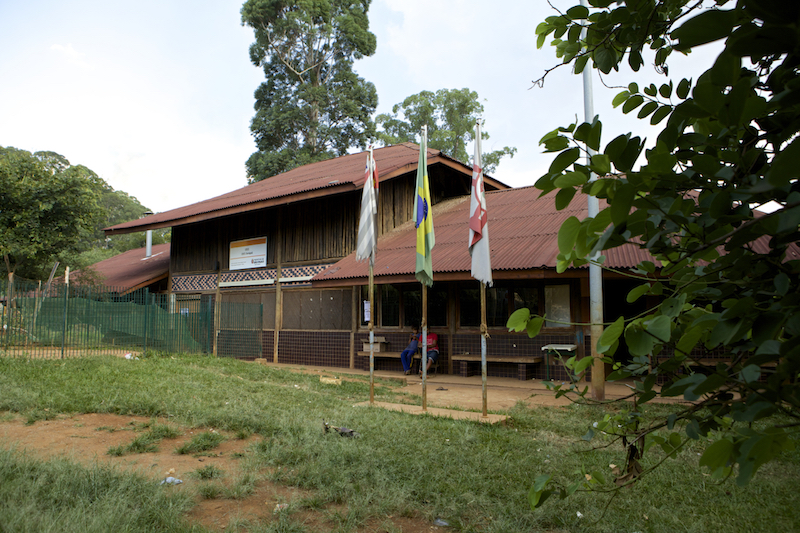
The Guarani Indians consist of the peoples speaking the Guarani language, who live in the territories of Paraguay, Bolivia, Brazil and Argentina. There are about a quarter of a million Guarani in the world. However, the majority of metis population in Paraguay may be considered Guarani too, which accounts for about another 4 million people.
The status of the Guarani Indians varies greatly depending on their country of residence. While in Brazil and Argentina they have a pariah status, the situation in Paraguay is absolutely different: the Paraguayan version of the Guarani language is one of the two official languages in the country. It is spoken by up to 90% of the nonindigenous population of Paraguay, which is unique for an indigenous language of South and North America. In Bolivia, a university opened in 2009, where Guarani is the language of instruction.
The conflict between the Guarani Indians and local power institutions in most countries is predefined by their ideology, their lifestyle and traditions. For instance, only the kindest, most sympathetic and noble person can become a tribe’s chief. If the commune members notice as little as hints of avidity, or people doubt their unselfishness – a new chief immediately gets elected. This is interpreted as the fact that “dark forces have won and now they are in a dialogue with the chief”.
Josef Fernandez, who lives in the Guarani settlement in Sao Paolo, is one of the four “Great chiefs” of the Guarani still alive. For this reason the settlement is overpopulated – too many Indians want to live beside him, so they come here from all over the country.
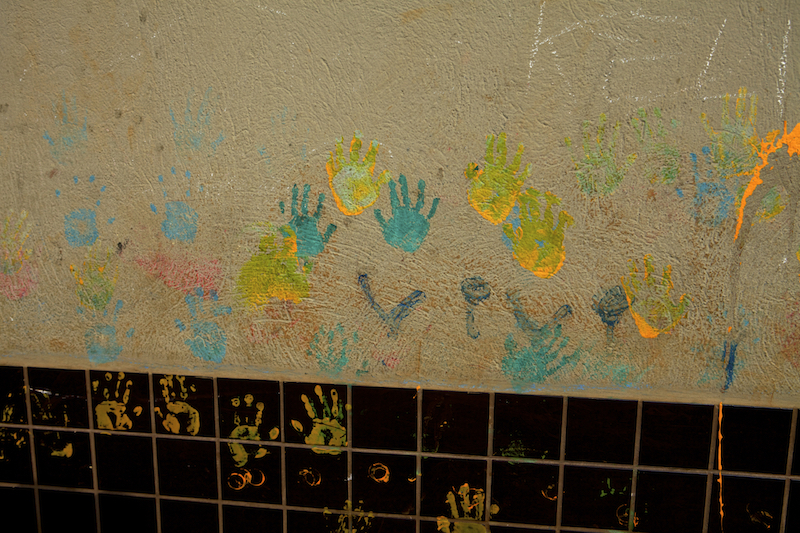
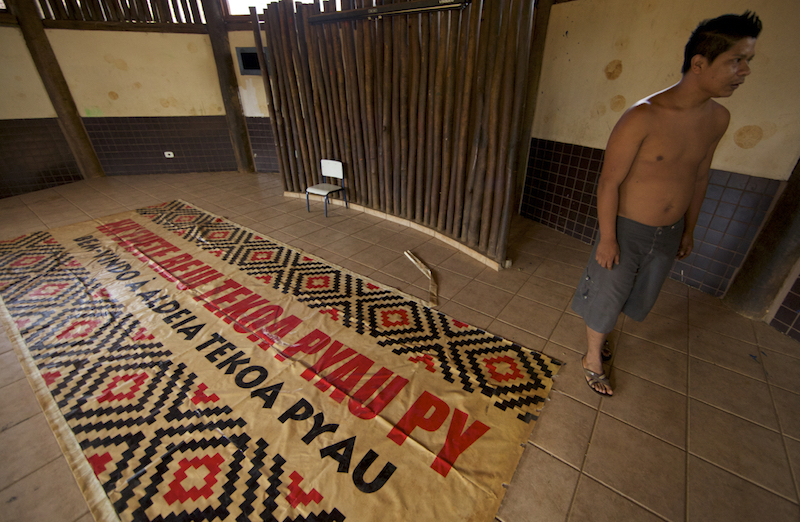


On the trip to the settlement we were accompanied by Fabio – an anthropologist, who started studying the problems of Indians about twelve years ago while he was at university. It is only thanks to him that we were able to be introduced to the Indian community. But the authority of the people, respected by an Indian community, is only enough to introduce a newcomer. Then Indians “read” the people, deciding whether a person may be accepted by the Indian community. During the conversation the chiefs observe you: your demeanor, body language, talk and thoughts. Further cooperation or simple communication can only take place if you have been accepted.
There is a tradition in which you present the chief with the gift of tobacco after getting acquainted, and if your gift gets accepted, you will be able to visit the settlement, communicate with the Indians and gradually find the answers to your questions. Few people manage to pass this seemingly easy test, - fortunately, we were accepted.
As we came to the settlement, all the chiefs were at a council meeting at the praying house – the building where most rituals and gatherings of the Indians take place. The problem was being solved between of two families that had affronted one another. The settlement of conflict between families or within families is usually the concern of the chiefs here. Such negotiations go on until the problem is resolved.




The first thing that you see entering the settlement is the school. This is where we settled for a conversation with Tupa – one of the most promising young chiefs in Village Tekoa of Pyau. The school for the Indian settlement was built by the Sao Paolo department of education, but they had only allowed only primary school lessons to be given here. The department’s administration couldn’t find a compromise between the education systems and decided that it would be better if Indians got secondary education from a state school. This was the simplest solution, although the knowledge that a Guarani school provides could significantly enrich Brazil’s national education system.
For example, the Guarani don’t use the traditional calendar, but the one of their own – a lunar calendar. They use it to identify the time for sowing and harvesting, fishing and hunting. One of the curious properties of the lunar calendar of the Indians is that with its help young couples plan the sex of the baby: with continuous success and 100% probability.
The authorities’ disregard of the Indians is based on the derisive question: “what can people, living at a dump, teach us?” This perspective is still being spread across the population of Brazil. It is exactly this approach that allows for disregarding the demands of the Indians, who have the right to their indigenous territories.
Indians believe that not only every living being, but also every object has a soul. Only money does not have a soul, as it provokes people to perform dirty deeds. Indians themselves minimize their interaction with money, by only purchasing some items necessary for the tribe’s common use. If, for example, you like a beaded bracelet, made by the tribe members, you can exchange it for something of your own, or get as a gift, but no one will sell it to you.
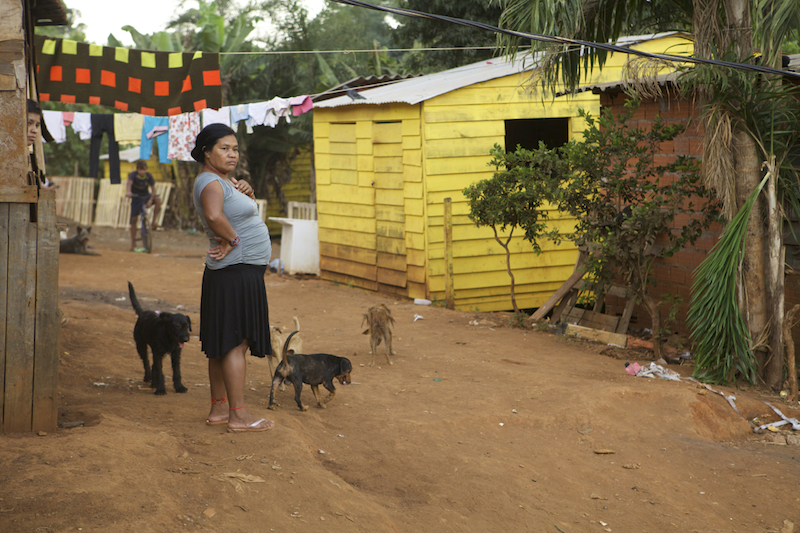
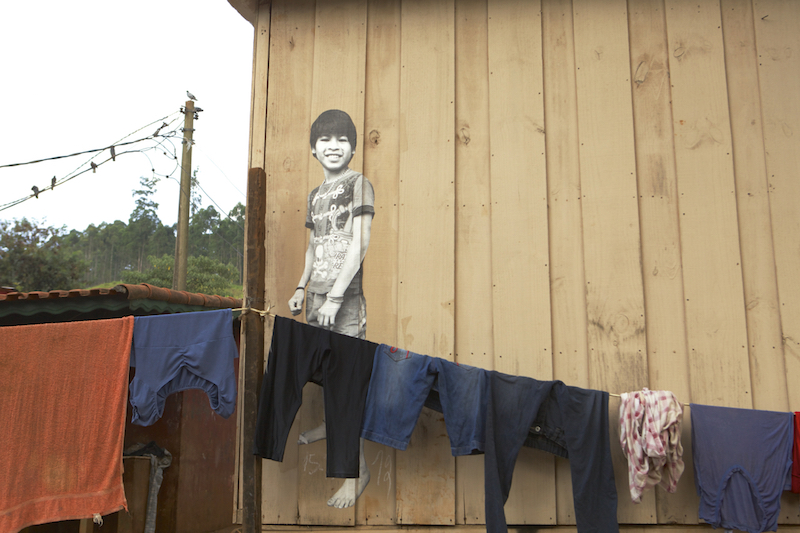
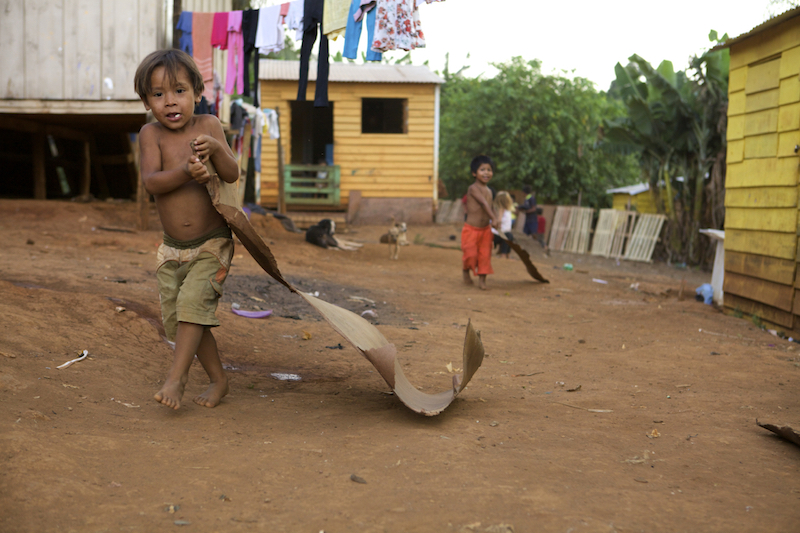

We are walking along the settlement, Tupa is lighting a pipe yet again. From time to time he scoops the balmy smoke with his hand and runs it over the face as if washing up with it. He was born in a different village and moved here as a young man.
Indians don’t give names to newborns; they get named aged one year old. According to their beliefs, a person cannot get a name independently of themselves. During the first year of life they observe the baby, study their character, reactions, the behavioral pattern. Depending on what they “read” from the baby, the baby gets named. When Tupa was born, he stared spellbound at the water during a tropical rain. He still freezes at times, distracted, looking into the distance as if trying to see something behind the trees. In Indian “Tupa” means “The god of rain”.
Dogs are running all over the Indian village – there are several hundreds of them, while only 620 people live here. It is forbidden to kill dogs in Village Tekoa of Pyau.
This is an Indian rule: if a dog wants to live by your side, you must allow it, feed and, if possible, look after it. Lately, however, there has been less piety for dogs because Sao Paolo residents - many of whom know that Indians take care of animals – are negligent owners who wanted to get rid of their pets, and started bringing dogs here.
“Had these people brought a dog and said they wanted to give it to us as a gift, I assume that a more reverent treatment of dogs would have beem preserved. But many bring fierce and ill-bread dogs here, - we are worried they might hurt our children”, - Tupa says.
It is worth pointing out that Indians don’t own dogs – none of them would say “this is my dog”. Rather they “allow dogs to live by their side”. Detachment is a bright character trait of Indians, perhaps even the basic behavior pattern. It becomes more apparent in relation to the dead. When a person dies, all his belongings get buried with him – “so he doesn’t have a reason to return”. An Indian cannot be attached to the deceased – they must let them go, having made their peace they become detached. Indian shaman healers claim that attachment to the dead is a portent of a grave illness.
If symptoms of such attachment exist, the person starts receiving treatment. The whole spectrum of chiefs and shaman healers’ influence is used: from psychotherapeutic conversations to series of serious therapeutic procedures. Tupa survived a similar problem after the death of a relative, which took him half a year and medical assistance to recover.
Sometimes, in order to recuperate from the grief for a dead person, Indians change the place of their residence, moving to different villages and joining different tribes – usually those where relatives can help them settle.
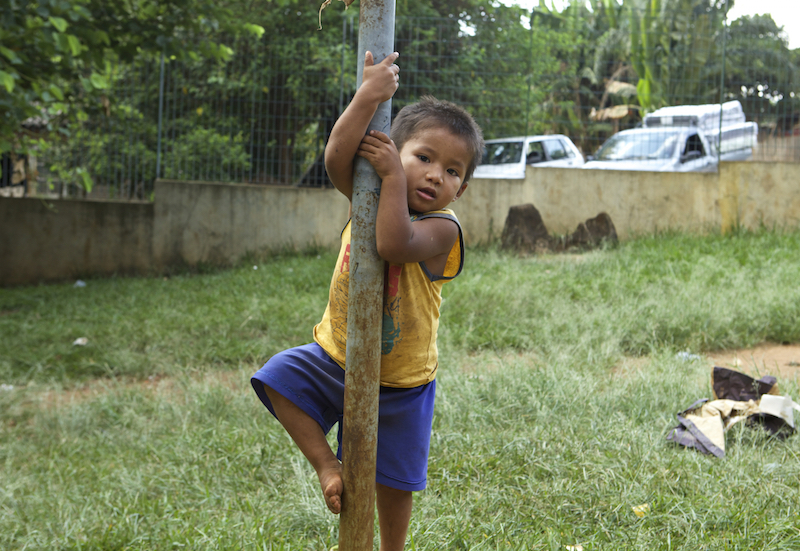
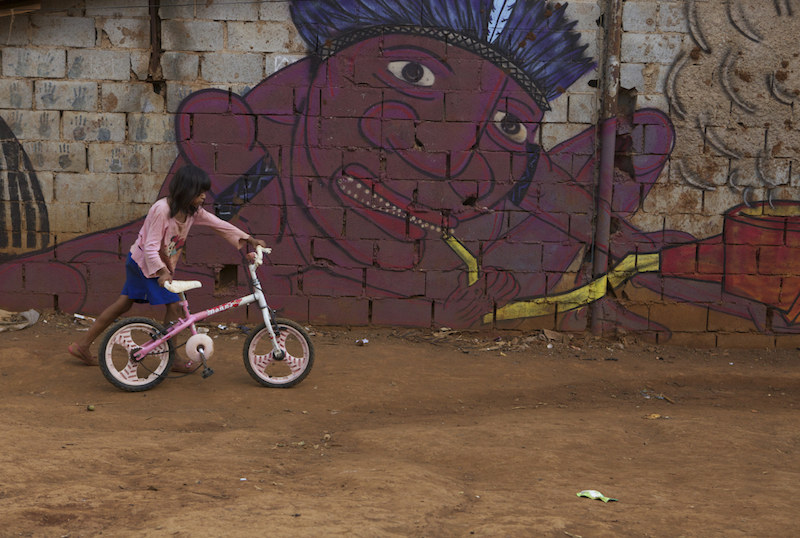
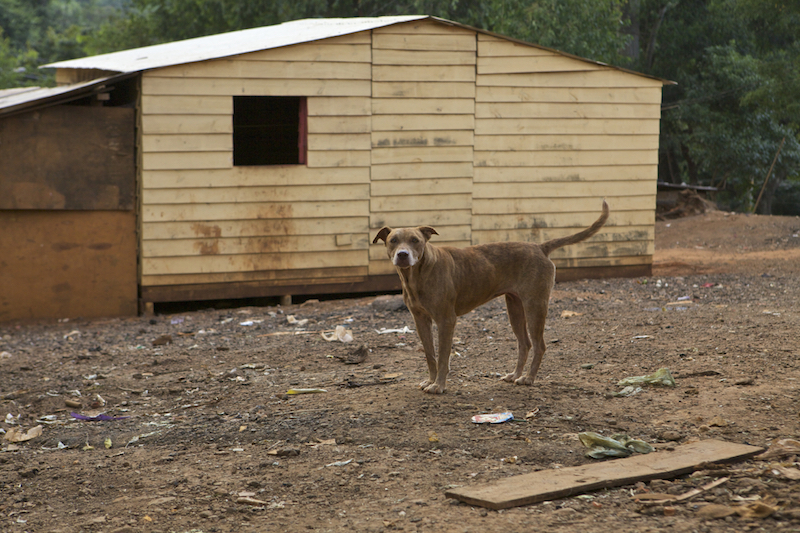
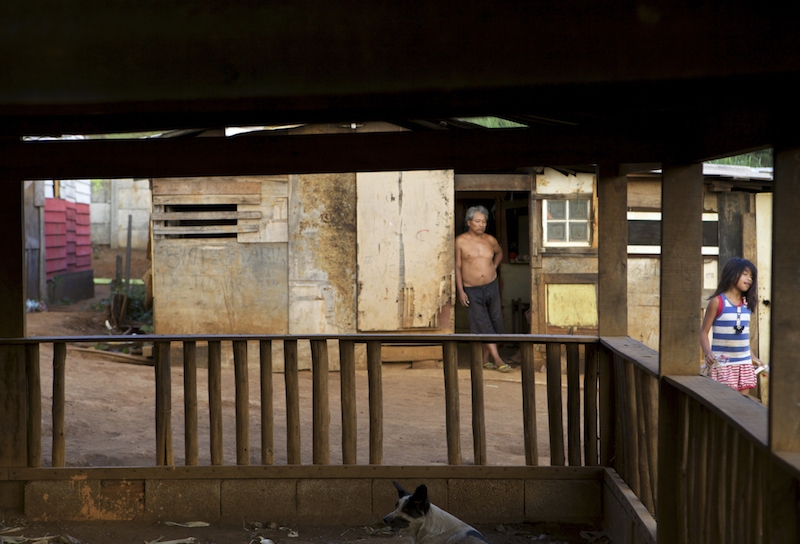
The tribe often sends Tupa to take part in conferences important to the Indians. Upon his return from one of those, he complained to the chief about many speakers using languages he didn’t know. The chief said: “You don’t necessarily have to understand the words. Watch and listen to the sound of the voice – you will always understand what the person is saying and whether this person is congenial to you”.
Tupa himself has learnt Portuguese, but only in order to have the possibility to assess the threats, coming from the government, and voice the opinion of the Indians. “In order to speak of ourselves, we had to learn the language of the conquerors”, - Tupa says. Since childhood kids hear the Guarani language, and only by the age of seven do they independently decide, whether they want to learn Portuguese.
Freedom is the supreme concept for Indians. All activities are looked at through the prism of freedom. A child’s choice to learn Portuguese is the same. But the Indians “see the world free not only for people, but for everything alive”. There is not a grain of archness in this conviction, voiced by Tupa. When the Portuguese colonized Brazil, all the attempts to turn Indians into slaves were futile, - they would sabotage any kind of work, in so doing starve themselves to death. For this reason the colonizers had to bring slaves from Africa.
The actions of the colonizers, who annihilated Indians and drove them away from their indigenous lands, and those of the Brazilian authorities, who didn’t want to have talks with the Indians, have meant that no dialogue has been had between the parties in five centuries. Indians still don’t consider the phrase “the discovery of Brazil” to be correct, interpreting that period of history as “the occupation of Brazil”.
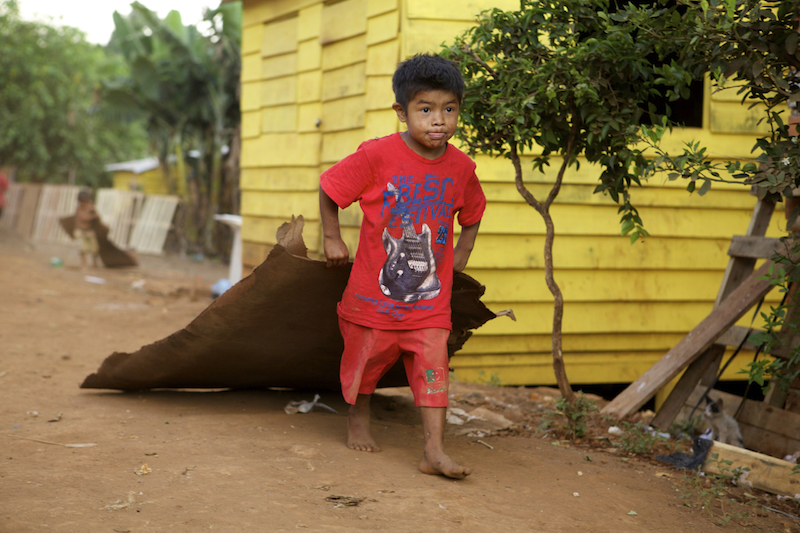

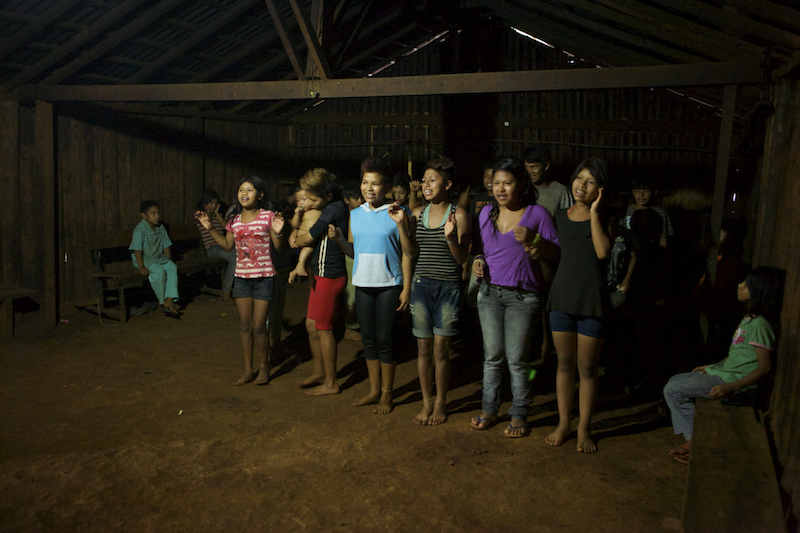

The main problem that Village Tekoa of Pyau faces today is the demarcation of the land. The Indians lose their indigenous territories without getting anything in return. Only in 2002 was it recognized that the whole city of Sao Paolo had been built on the Indian land. A city in which there was no place for Indians.
The only upside to this village’s location within the city lines is the fact that Indians promptly receive information of what new measures the authorities are going to take against them. This allows for a quick reaction in order to stand up for their rights, but confrontation has never been a part of the Guarani’s plans. They are ready for a dialogue, as there they have a principle of peaceful conflict resolution. The principle “first listen, before you judge someone” is applied even to those who violate the rules and norms of the Indians. They are incredibly patient and they are ready to listen to a person for as long as such they have something to say.
When we ask who Indians are and are not friends with, Tupa lights a pipe and utters after a pause: “First of all, we establish friendship with our souls, not with what surrounds us”. There is not a shade of pathos in these words, there are no multiple senses, this is just a statement of a fact, unquestionable for Indians. Peace with yourself, based on the centuries-old tenor of their life and the rules and myths, passed by chiefs from one generation to another, is of foremost importance to the Guarani Indians.
“For a white man land is power; for us land is life”. There is no desperation in his words or even a shade of suffering – time has taught him to take even worst news with patience. Speaking with Tupa, you realize that detachment is a defense mechanism that spares Indians their lives. It is calmness that helps them not to fall to vehemence, which could push them towards making bad, rash decisions.
But at a certain point a bitter note slipped out in Tupa’s voice. As we were walking along the village, he noticed the glance that we cast at the poverty and misery of the Indians populating the village. He said: “What you see is not the real us”.



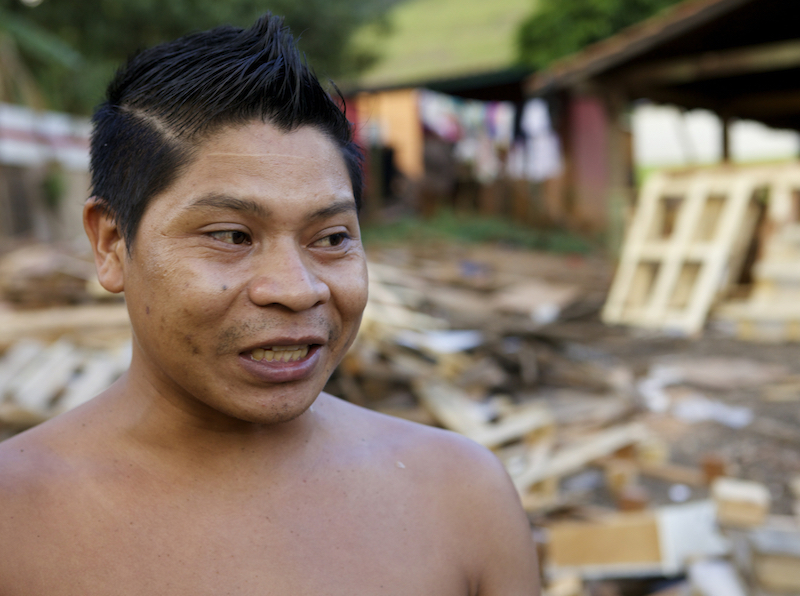
That is true – this is not them, this is a shadow of them, created by Brazilian authorities, who only want one thing: for the “Indian issue” not to come up in public awareness anymore. The Guarani Indians are different: they keep the theater and the school perfectly clean; every morning they dress their children in clean clothes; they surround kids with inconceivable care, and base their upbringing on the principles, tested by centuries of practice.
On parting, standing in the settlement’s central square, buried in construction materials, we asked Tupa of what the Guarani expected of the future. Tupa answered unusually fast, practically without a pause: “We don’t have long-term plans. We come up with plans as we wake up in the morning”.
Subscribe to our mailing list: